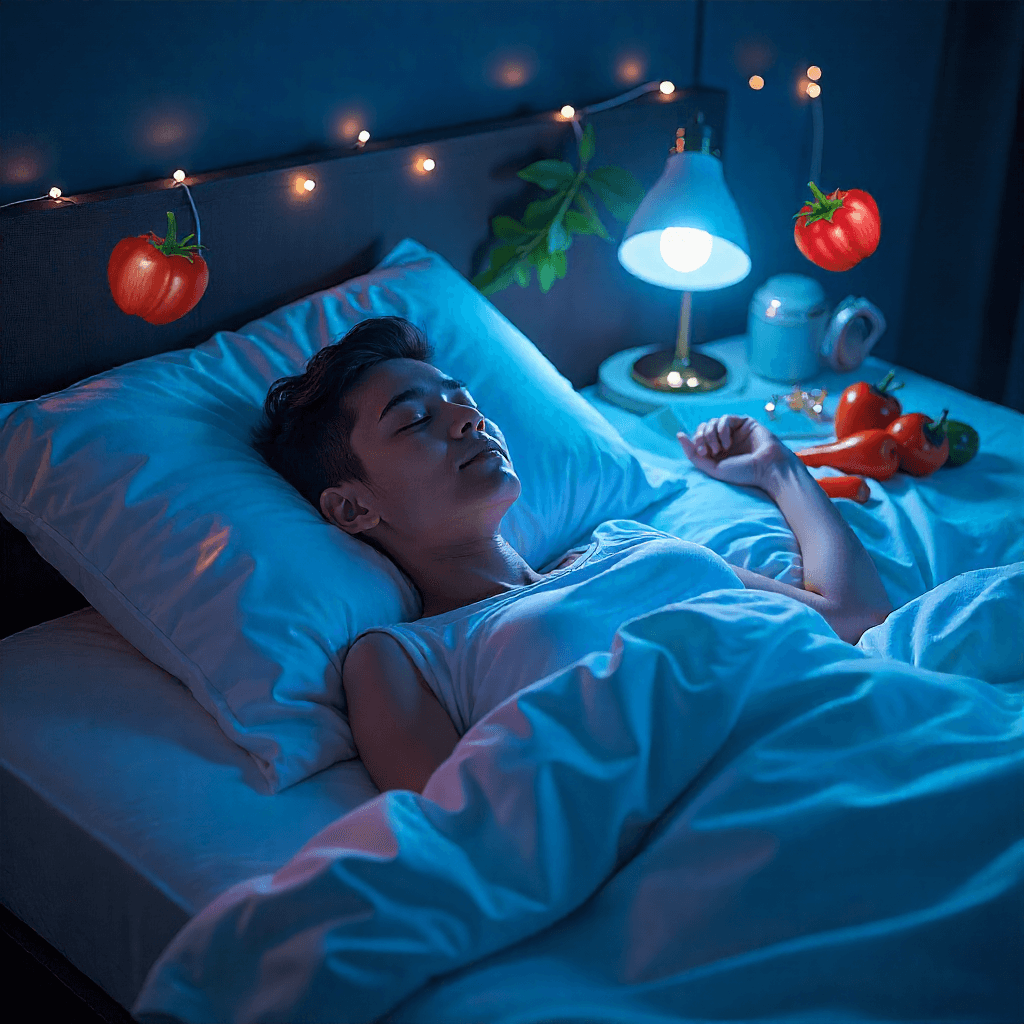This article will explore the impact that pregnancy has on your sleep and offer some tips and techniques that you can employ to improve sleep during this time of significant change.
The changes that your body experiences during pregnancy could be a lot, and later on, the final weeks could cause some difficulties in sleeping.
Table of Contents
Introduction
While pregnancy brings about many positive changes in women’s lives, it also presents unique challenges, particularly in the area of sleep. Hormonal changes, physical movements, and emotional stress can cause sleep disturbances. This can hinder your ability to sleep soundly, which is necessary for you. The changes your body undergoes during pregnancy can be significant, and in the last few weeks, these changes can lead to sleep issues. But the right sleep habits and a good plan can help you sleep when you need to and make it more comfortable.
.
1. Sleep disruption and pregnancy
The Impacts from Pregnancy and Sleep When you’re pregnant, you’re forced to sleep less due to a myriad of reasons, which could affect your sleep, specifically when your body is accustomed to the changing needs of the fetus as well as the effects of hormones that are present in your body. In the first trimester there is a chance of exhaustion and nausea that can hinder getting an adequate night’s sleep. Pangs and pains from the expanding belly, backaches, and involuntary bathroom visits can all interfere with sleep as the pregnancy progresses. Sleep issues can be aggravated by stress and anxiety due to the baby and the future of motherhood (Mindell and other authors). In 2015).
2. “Pregnancy disruption” Effect on sleep quality
One of the main reasons pregnant women fail to sleep is because of hormonal changes. The progesterone released by the body increases because the hormone aids in assisting with the growth of a baby since this hormone could be thought to have an effect on a person’s sleep, which causes them to feel tired more than every other day. But it can cause sleep disturbances because of the uncomfortableness, frequent visits to the bathroom, and the inability to locate an appropriate sleeping position, made possible by the body’s reaction to hormonal changes (Haig, 2015).
2.1 Fatigue and Sleep Disturbances in Early Pregnancy
The effect of pregnancy on sleep quality More fatigue and misery are more prevalent during pregnancy and are usually experienced in the first trimester of pregnancy when the body gets exhausted to support the baby. The fatigue may be associated with nausea, dizziness, and the inability to feel refreshed. These symptoms can make it difficult to fall asleep and slumber, as a lot of pregnant women are tired throughout the morning. Additionally, sleeplessness can result from physical discomfort felt by the infant as it grows and can result in an increase in back pain, heartburn, and swelling of feet (Minges et al. in 2015).
2.2 Frequent Urination and Its Effect on Sleep Quality
DS on the toilet Frequently urinating is a common experience as the pregnancy progresses, particularly during the second and third trimesters. Pressure created by the growing bladder and uterus causes many women who are pregnant to get up multiple times during the night in order to go to the bathroom. These disturbances can disrupt the process of sleeping and result in a loss of sleep and can make people feel exhausted and emotionally upset the following day (Singh et al., 2018).
2.3 Emotional Stress and Hormonal Shifts Affecting Sleep
Stress hormones and emotional The pregnancy itself can come with emotional turmoil that can disrupt sleep. The anticipation of birth and expecting a baby and anxiety about the birth and the introduction of changes to your lifestyle could cause insomnia and sleep disturbances. The resulting hormonal shifts and stress can cause women to feel uneasy, to relax, or unnerved in the night, making it harder to fall asleep and rest comfortably (Brunton 2014).
3. Tips for Better Sleep During Pregnancy: Using Pillows for Comfort
Tips for sleeping during pregnancy Make use of pillows to relax your body and lessen discomfort. Later it may be difficult to find a suitable sleeping place once your pregnancy is progressing. Pillows to help make your body more comfortable are among the best strategies to reduce the risk of discomfort. A wedge pillow placed under your belly or between your knees as well as behind your back, or the body pillow, will help relieve pressure and help you sleep better. They are also able to provide additional comfort and make sure that you don’t roll over on your back, which is not recommended when pregnant due to the pressure put upon the back and vessels of blood.
3.1 Sleeping on Your Side
Make sure you sleep on your side to improve circulation. Many doctors generally recommend sleeping in the left position, specifically during the second and third trimesters. This can aid in improving circulation since the uterus can be left to rest on its left-hand side. This is where pressure can be reduced on the main blood vessels of the body, increasing blood supply to the placenta and baby. The position of sleeping on the left side of the body helps to reduce swelling in the legs and feet, which is a common symptom of pregnancy (Lee et al. 2013).
3.2 Suggestions and Ideas to Mitigate the Effects of Night Shift Work
If you are sleeping on your own in the evening, it can be challenging to remain in a position that is comfortable for you. You can put a pillow on your back to prevent the rolling. To deal with stress and anxiety, practice relaxation methods. Relaxation techniques are very helpful in managing stress and anxiety during pregnancy, which can affect sleeping. Meditation or slow breathing exercises and meditation may help ease your mind and relax you, so your body is likely to be able to go to sleep. It may be beneficial to download an app like Calm or Headspace that offers guided meditation for sleep and relaxation exercises that are offered specifically for pregnant women. It can also help prepare you to sleep and keep sleep because it will bring your heart rate lower and set your muscles at peace (Field et al. 2009).
4. Additional Sleep Tips for Pregnant Women
4.1 Maintain a Consistent Sleep Schedule
Additional Sleep Tips on Pregnancy I suggest you maintain a consistent sleep schedule. When it comes to pregnant women, it’s beneficial to maintain consistent times of sleeping even if you feel tired. Awakening and falling asleep each day at the same hour helps regulate the timing of your body’s circadian rhythm and improve sleep. It is advised not to sleep for long periods throughout the day, as it can disrupt evening sleep (Haig (2015)).

/
4.2 Hydrate Throughout the Day, But Limit Fluids Before Bed
Drink lots of water. However, Don Drink water before going to bed. Bedtime. Hydration before bed is important for you as well as your child, but excessive drinking of fluids prior to going to bed could make it more likely for a person to go to the toilet in the evening. Make sure you drink plenty of water throughout the day, but be sure to restrict fluid intake in the time before bed so that you don’t have the urge to use the bathroom in the evening.
4.3 Get moving during the day.
Simple exercises during the day can help you fall asleep more easily in the evening. Swimming, walking, or yoga for prenatal women are excellent ways to get rid of the discomfort of pregnancy and help the blood flow more effectively. However, avoid rigorous exercise near your bedtime because it could make it difficult to fall asleep.
Conclusion
In conclusion, not just the hormonal changes can affect the quality of your sleep during pregnancy; however, physical pain as well as emotional stress can affect sleep greatly during pregnancy. However, when you have the proper methods, such as the support provided by pillows or sleeping on your side, or performing exercises to relax, you can increase your sleep quality during the pregnancy. A better rest is assured by a regular sleeping schedule, drinking plenty of fluids, and performing a few light exercises. By following these guidelines, each woman who is pregnant can enjoy a better sleep experience that is more restful and can support her regarding both her overall health and the overall health of the child throughout this crucial time.




























